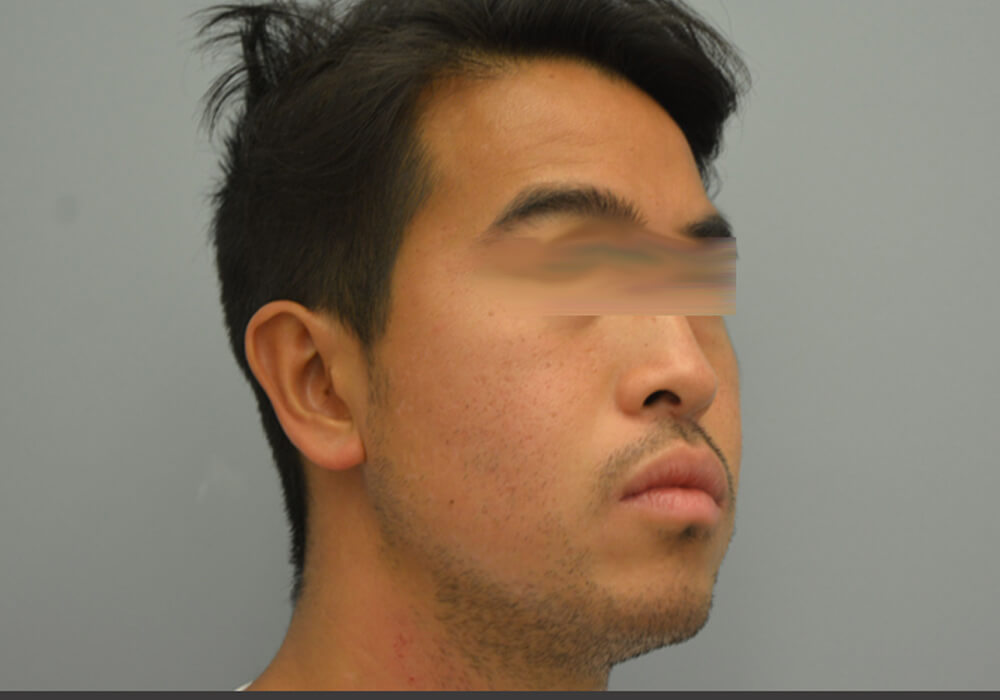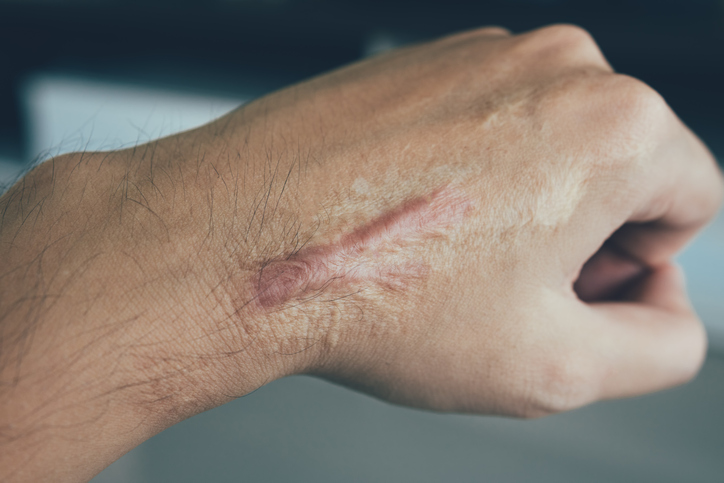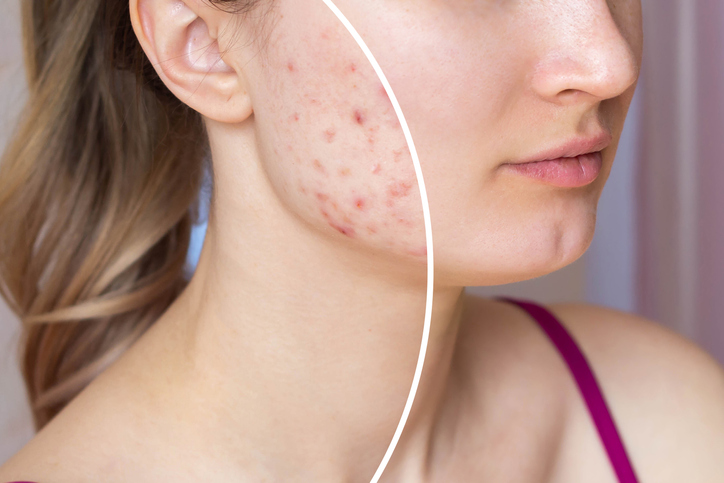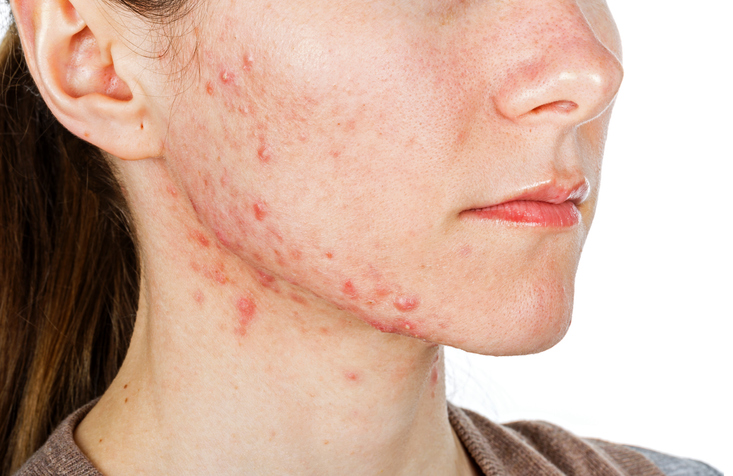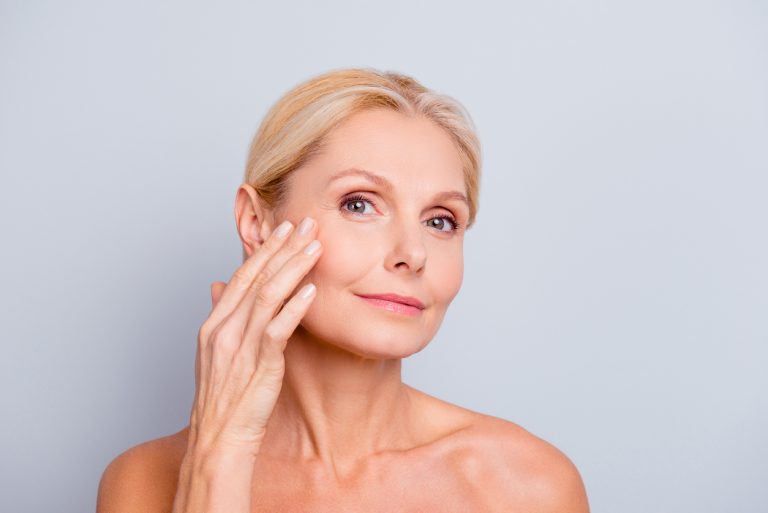What is acne?
Acne develops when oil and dead cells block a hair follicle. Hair follicles naturally produce oil (sebum), which keeps our skin supple and protected. When there is too much oil, this blockage traps bacteria, which causes an infection in the hair follicle (or pore, as it may also be called). Acne is a series of mini infections across an area of the body by clogged hair follicles.
These mini infections can be difficult to treat and lead to a permanent restructuring of the skin. Treating collagen damage can be sometimes harder than treating the pimples themselves, though long-time sufferers who ended up with a lot of scarring will attest to the sometimes excruciating difficulty of both.
Acne most commonly occurs on the face, neck, chest, back and shoulders, since these areas have the hair follicles with the greatest oil production. More oil equals more pimples equals ultimately more scarring for an unfortunate percentage of sufferers.
Understanding pimples
There are whiteheads, blackheads, and acne. A whitehead is an infected, inflamed hair follicle with a membrane (the white bit) across the top that prevents the contents being exposed to air. A blackhead is the same situation, but the membrane is gone and the sebum has been exposed to air, blackening it (oxidisation).
Cysts can develop, causing what’s known as cystic acne. Bacteria is easily spread across the face, infecting more hair follicles, and causing pain, redness, and possibly acne scarring later.
Pimples are not caused by being ‘dirty’ or from not cleansing enough. Acne’s causes are deeper than that and sit more with your hormones and oil production than anything else.
Treating acne and acne scarring
We have procedures & treatments for both active lesions and scarring. We use lasers, radiofrequency, plus creams and medication where appropriate. We will sit you down and take a thorough history to find out what your face needs to be healthy and smooth.
Gentle cleansing does help
Washing your face with a special cleanser does help because it kills bacteria and soothes the skin. Over-washing, however, is bad news, as it can cause further inflammation, perpetuating the cycle. Cleansing by itself is not the answer.
Dermatological and medicated creams and washes
We have high-quality creams, ointments and washes for you that will not worsen your condition but can actively work to resolve it, in conjunction with other, more biologically-active removal strategies.
For example, benzoyl peroxide is great as an antibacterial and can help unblock your hair follicles, while other topical applications can help your cells regenerate.
Medicines for acne
Medication for acne and as a pimple treatment is reasonably limited to the oral contraceptive pill for women, and a powerful prescription-only drug used only in severe cases.
RF and lasers
Strategies include radiofrequency devices and lasers that hit the cells at a deeper level, strengthening and supporting. Each machine has a slightly different function, including some lasers that treat using ablation. These wave-based therapies also have the added benefit of killing bacteria and improving overall tone and texture.
Common at-home acne mistakes
There are a few mistakes you can make while trying to treat acne at home by yourself. These include over-treating with too many different treatments at once, instead of trying one at a time to see what works.
Acne removal can be a long-term process, so take your time and do it properly – don’t give up too soon. There is a natural inclination to scrub ourselves ‘clean’ of this affliction, so we scrub, exfoliate, and generally over-clean our skin, to its detriment, usually without success. Over-cleansing is a quick way to get redder and sorer. Your skin isn’t dirty, so over-cleaning won’t work.
Spending proper money on good products is also important. Having cheap products can cause you more damage than its worth by not only not helping, but causing further inflammation. Using the right amount of products also matters, so use the amount you are directed to use – not less, not more.
Picking your pimples is a no-no, because you put more bacteria into the already-infected pores, plus cause further inflammation. May be tempting, but keep your filthy mitts out of it.
Another common mistake is to stop treating yourself because it worked! Acne is generally not something you ‘cure’; it’s something you manage, and if you’re lucky, yes, resolve over time. Most acne that responds to treatment has had the problem tweaked not solved, but it means you need to keep going.
Acne is a problem with your insides, not your outsides, so get the proper treatment, find the true cause of your problem, and deal with it appropriately. You may have a hormonal imbalance, an underlying condition like polycystic ovarian syndrome, or excess testosterone. Not knowing leaves you stabbing in the dark.
It really pays to get professional advice and get your acne treated properly before it starts damaging your skin permanently, which is harder to treat, especially with active lesions.
Acne scar strategies
Our scar specialists treat acne scars in various ways, depending on the depth, type, and characteristics. Dermatological scarring treatments have progressed in some significant ways over the years, with the latest idea of ‘remodelling’ scars becoming a real thing that we can do.
Remodelling a scar is more or less what it sounds like: creating a new shape out of the scar tissue. This means we can change the way the collagen appears, since scars are made out of collagen fibres. We can’t make the scar tissue go away completely, but we can make it look different (better).
Our radiofrequency machines work in big ways with collagen, stimulating new collagen production, while having the capacity to shape the collagen that already exists in scars via the denaturing process (collagen is a protein).
Surrounding tissue remains untouched, and overall your skin will be smoother and firmer. Procedures are comfortable and effective, without downtime required like some lasers.
Lasers can work by either stimulating the collagen-producing cells and collagen, or in fact working in an ablative fashion. An ablative laser used is useful if the scars are able to be ‘worn down’ this way, and removed from the surface of your skin.
Some scars will be too deep for ablative lasers to work alone, and therefore a combination of medicated creams, medication, lasers, and light procedures may be the best route to clear, smooth skin.
